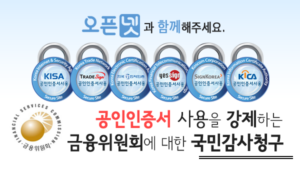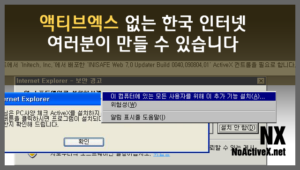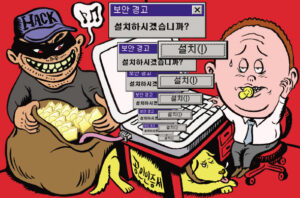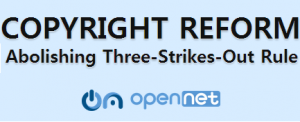Press Release
Open Net Files a Constitutional Complaint Challenging the Deepfake Prohibition Provisions under Public Official Election Act
Open Net Korea filed a constitutional complaint on October 1, 2025, challenging the deepfake...
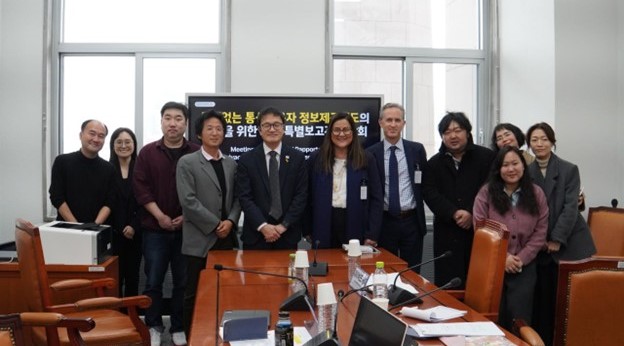
UN Special Rapporteur on Privacy: “Warrantless Collection of Telecommunications User Information Violates International Human Rights Law and Must Be Reformed” – Sends Allegation Letter to the Korean Government
1. Ana Brian Nougrères, UN Special Rapporteur on the right to privacy, sent an allegation letter...
Democratic Party’s Push for the ‘Korean-Style DSA’ Must Align with International Human Rights Standards
The Democratic Party of Korea is pursuing a new law imposing liability on internet platforms for...
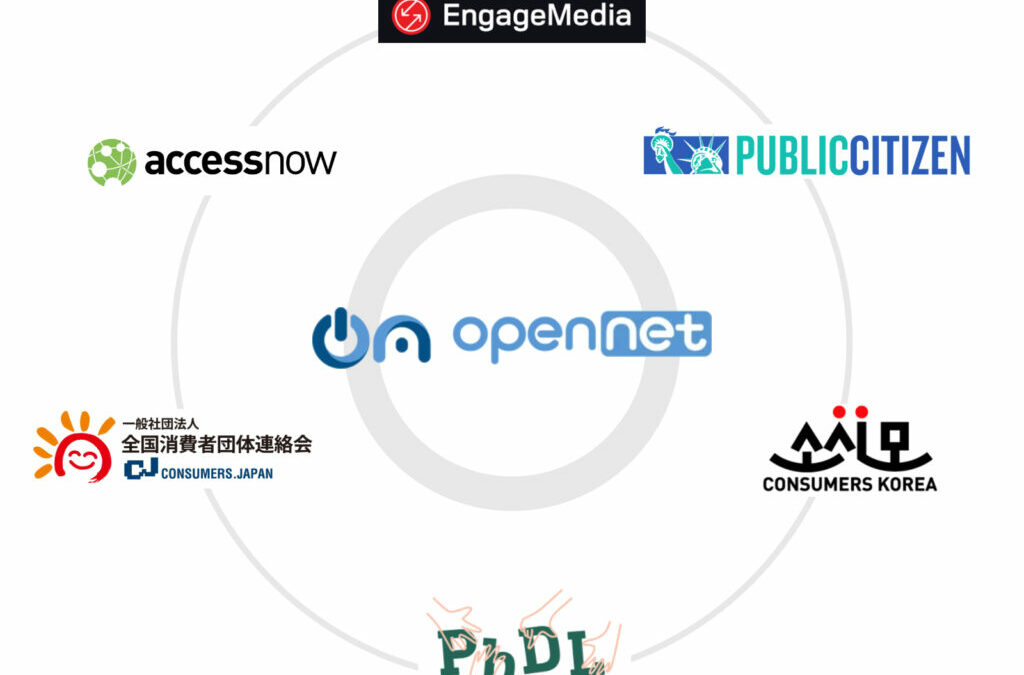
GPA 2025 SEOUL: Open Net is Advancing Asia Pacific Digital Consumer Dialogue, a CSO alliance to engage treaty makers
Advancing a Digital Consumer Dialogue in the Asia-Pacific On the side line of Global Privacy...
![[Joint Statement] The Audiovisual Media and Communications Review Committee Will Become an Administrative Censorship Body that Strangles Freedom of Expression](https://www.opennetkorea.org/wp-content/uploads/et_temp/표지-1024x961-108584_1024x675.jpg)
[Joint Statement] The Audiovisual Media and Communications Review Committee Will Become an Administrative Censorship Body that Strangles Freedom of Expression
The bill, Amendment to the Act on Promotion of Information and Communications Network Utilization...
LITIGATION
Open Net Korea, on behalf of the ‘Bad Fathers’, lodged a constitutional complaint regarding defamation
February 5, 2024 On February 2, 2024, Open Net Korea is initiating a renewed constitutional...
EFF Supports Open Net’s legal challenge against mandatory upload filter
Electronic Frontier Foundation is filing the attached amicus brief in a constitutional challenge...
[Statement] The Industry Protection Act Task Force Expresses disappointment with the Court’s Decision to Dismiss the Constitutional Complaint on the Industry Protection Act: the Task Force will Try to Recover the Right to Know which is Insulted by the Industry Protection Act at Our Best
Seeking unconstitutional litigations for individuals and companies on unfair trial for 'tech...
Court Decision on ‘Bad Fathers’ Case Reveals the Excessiveness and Unconstitutionality of the Truth Defamation: Open Net Urges the National Assembly to Abolish Criminal Truth Defamation Law Immediately
On January 4, 2024, the Supreme Court, Division 2 (Chief Justice Chun Dae-yup, presiding),...

UC IRVINE INT’L JUSTICE CLINIC & KU INT’L HUMAN RTS CLINIC ON WOMEN ON WEB
Women on Web, which has been distributing abortion pills to women in each country who want to have...
OPEN SEMINAR
Civil Society Condemn Police Threatening Search and Seizure for Presidential Satire!
Tuesday, February 27, 2024, 11:00 AM | In front of Seoul Metropolitan Police Agency (Gyeongbokgung...
[Press Release] Ryu Hee-rim must be the subject of an investigation, not the whistle-blowing employees of the KCSC
Today, we stand in front of the Seoul Metropolitan Police Agency, which conducted a search and...
[Press Conference]Public Announcement for Font File Copyright Royalty Negotiation Guidelines
Before uploading the English version, please read the Korean version with translation tools.

UC IRVINE INT’L JUSTICE CLINIC & KU INT’L HUMAN RTS CLINIC ON WOMEN ON WEB
Women on Web, which has been distributing abortion pills to women in each country who want to have...
Guide to Responding to Font File Copyright Settlement Demands
1. Using font designs without the font file does not constitute copyright infringement The design...
COURT ACTIONS
Open Net Filed for Civil Damages against NIS and Investigative Authorities for Unlawful Warrantless Access to Subscriber Information
Please read the Korean original here.
The Court Dismissed Copyright Troll’s Claim against BitTorrent Users – Open Net Successfully Defends Internet Users!
Please read the Korean original here.
Open Net Wins a Lawsuit on KCSC’s Takedown of 4shared.com – The Court Found the Takedown Illegal!
Please read the Korean original here.
Warning: Former Lawmaker and Popular TV Show Host Attorney Kang is Pressing Charges Against Hundreds of Netizens under Crime of Insult
Please read the Korean original here.
Open Net Leaves Good Precedent for Fair Use and Damages Calculation
Please read the Korean original here.
education
Open Net Welcomes the Proposal of Bills to Abolish Criminal Defamation for True Statements to Promote Freedom of Expression
Recently, multiple bills have been proposed to abolish criminal defamation for true statements....
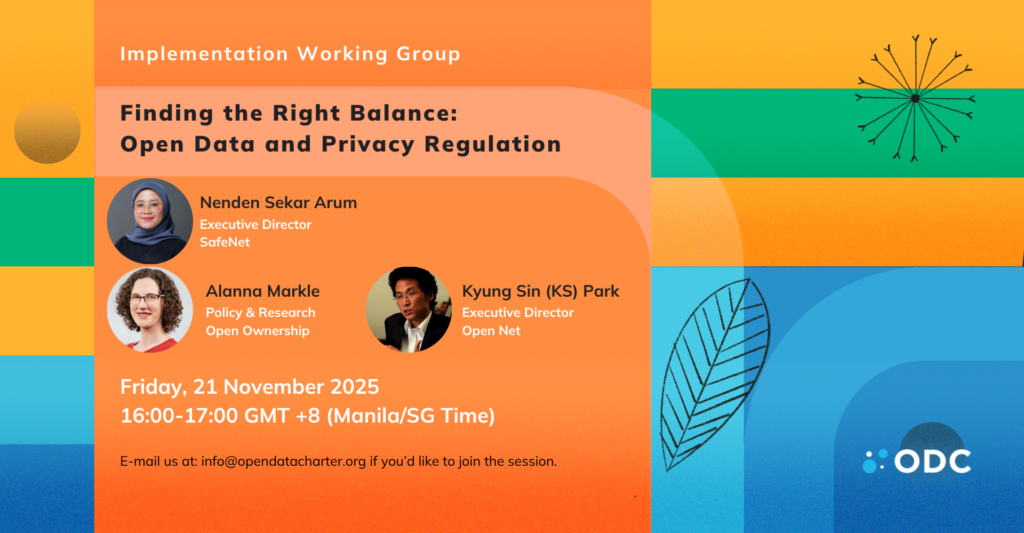
Open Net on Open Data v Privacy in Asia – 3 Flash points in South Korea: Court judgment database, right to be forgotten, and privacy-based FOIA denials
K.S. Park spoke on November 21, 2025 on the flash points of the tension between open data and...
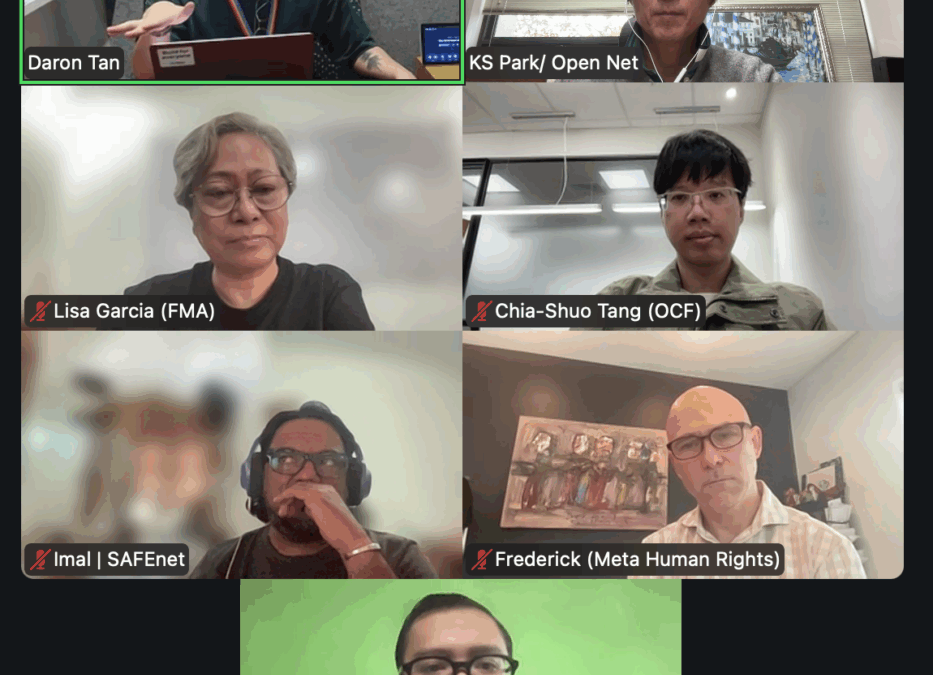
Protected: SEACPN engages META on the Philippines and Taiwan appeals process
Password Protected
To view this protected post, enter the password below:

Citizens’ Network for Constitutional Amendment Lecture Series <Constitutional Amendment Forum to Guarantee Fundamental Information Rights in the Digital Age>
Citizens' Network for Constitutional Amendment Lecture Series <Citizen-Led Constitutional...
Open Net Files Fair Use Opinion in Press Photo Copyright Case Involving Independent Media
KS Park, Executive Director of Open Net Korea and professor at Korea University, submitted an...
POLICY RESEARCH
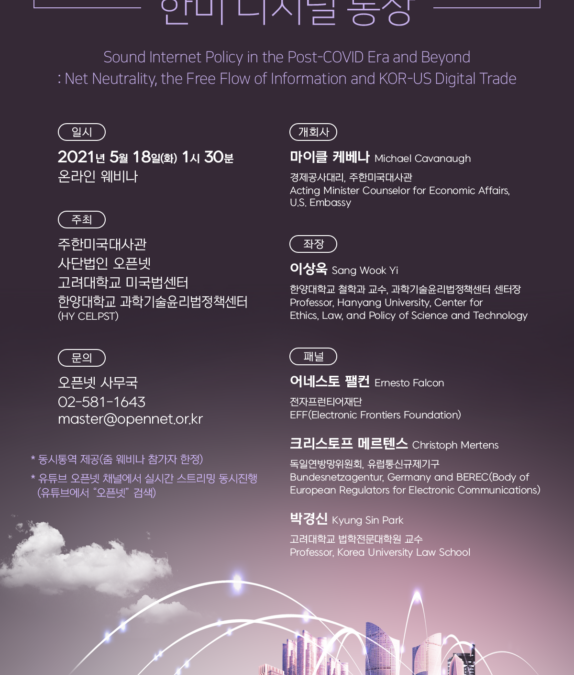
Sound Internet Policy in the Post-COVID Era and Beyond: Net Neutrality, the Free Flow of Information and KOR-US Digital Trade
Sound Internet Policy in the Post-COVID Era and Beyond: Net Neutrality, the Free Flow of...
[Presentations] “AI, Ethics & Data Governance” 20/1/2020
Date & Time: January 20, 2020 (Mon) 10:30-16:30 Location: Veritas Hall, B1F CJ Law Hall, Korea...
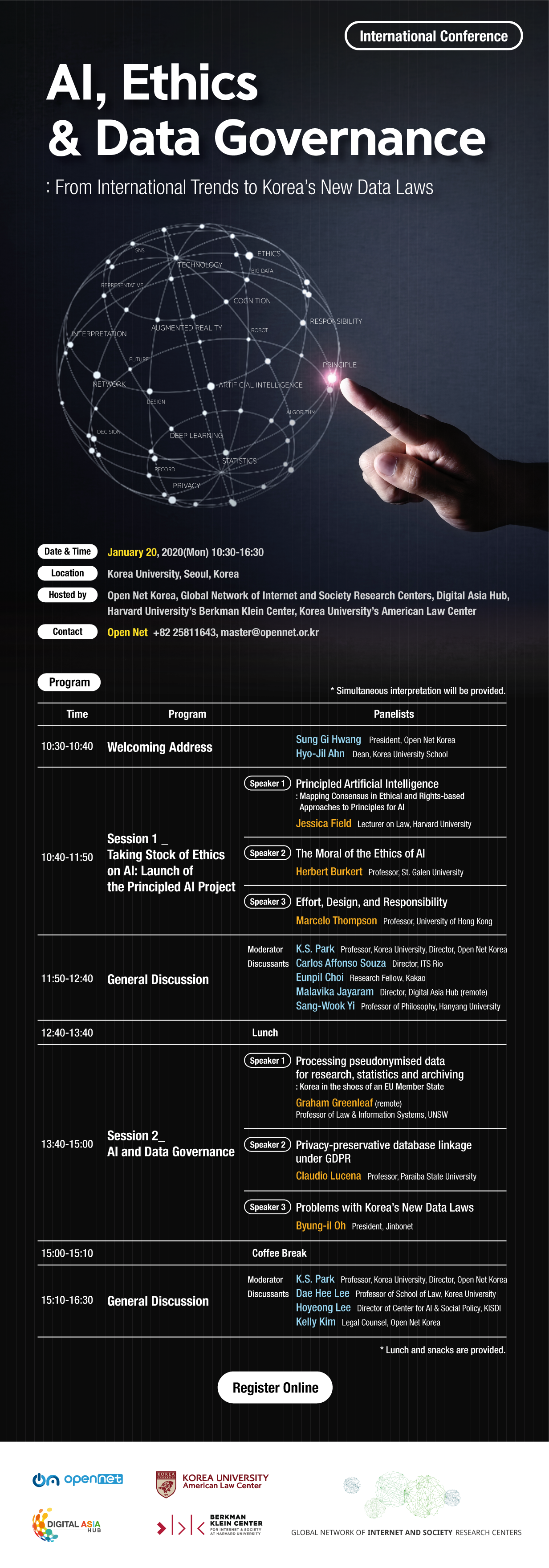
Open Net Hosts “AI, Ethics & Data Governance: From International Trends to Korea’s New Data Laws” Conference on January 20
Open Net hosts the international conference, "AI, Ethics & Data Governance: From...
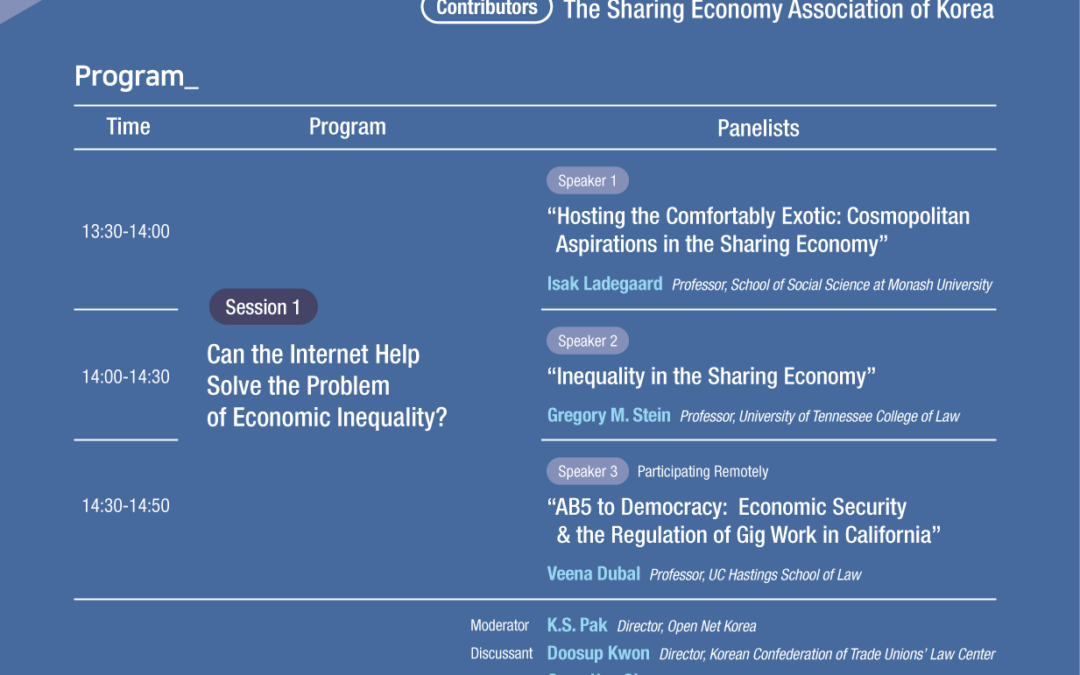
Open Net to Host ‘Can the Sharing Economy Help Reduce Economic Inequality?’ Seminar on December 16
Open Net will be hosting a seminar on the topic of 'Can the Sharing Economy Help Reduce Economic...
November 7, 2019 Special Seminar on Reforming Interconnection Rules
Toward Free and Fair Internet Ecosystem: Special Seminar on Reforming Interconnection Rules ...
CAMPAIGN
Stop Internet Censoring
We have seen many attempts to censor the Internet under the pretext of copyright protection. Notorious attempts are SOPA and PIPA of 2012, which triggered the largest online protest in history and was eventually withdrawn, and ACTA, a plurilateral trade deal killed by the European Parliament in 2012. Now, Korean government tries to enact a much stronger internet censoring rule. If it passes the legislative body, a copyright protection agency may cut off access to websites that the agency views as copyright infringing. The concerns over mass surveillance and privacy vulnerabilities by the proposed rule are widespread amid the government’s new drive to block “https” traffic by SNI eavesdropping (See, press release of Korea Communication Commission on February 12, 2019 and press release of MCST on May 2, 2018, both in Korean).
Intermediary Liability Campaign
Korean law (Copyright Act Article 103, Information Communication Network Act Article 44-2) requires intermediaries to take down all content for which anyone sends a takedown notice, regardless whether the content violates any right or law, not as a condition of qualifying for a safe harbor but as a positive obligation. As a result of this ‘mandatory’ notice-and-takedown system, the intermediaries are forced to take down thousands of contents daily which they believe to be perfectly lawful. Also, Korean laws require some intermediaries like P2P and cyberlockers to implement ‘technical measures’ to filter out copyright infringing material (Copyright Act, Article 104) and obscenity (Telecommunications Business Act Article 22-3 Paragraph 1), and requires all intermediaries to implement technical measures to filter out child pornography (Children and Juvenile Sex Protection Act Article 17). These ‘technical measures’ requirement ends up requiring the intermediaries to monitor each and every third party content posted on their services, turning the Internet into a space open to only those contents implicitly permitted by the intermediaries.
Open Net Korea has engaged in various efforts to bring the Korean law into compliance with the international norm, including but not limited to participating in the Steering Committee of the Manila Principles for Intermediary Liability, co-authoring a Good Practice Guideline for Intermediary Liability Regime published by the Network of Centers for Internet and Society, and calling the international community to write to the relevant officials.
Open Payment Campaign
Currently, the law requires all online payments above 300K Korean won (about US$300) to be signed by so-called “accredited certificates”, which are backed only by a Korean government agency operating as a root CA but none of the internationally recognized certificate accreditation agencies and therefore require various plugins to be downloaded from various vendors (most often through Active X technology due to the 90% plus dominance of Internet Explorer in the country) enabling and protecting the certificates. Such monolithic “closed” payment rule made the Korea-based e-commerce inaccessible for overseas customers and very inconvenient for domestic customers and indoctrinated Korean customers into a dangerous habit of accepting downloads of unknown origins, who therefore became easy targets for pfishing and other financial frauds. Open Net calls for the dismantling of the payment rule mandating use of the government-backed-certificates that are not really “accredited” in any global sense.
In 2013, Open Net ran a petition drive to file a Citizens’ Audit on the Korean Financial Services Commission responsible for implementing the closed payment rule, and obtained the sponsorship of more than 300 signatories who signed on-line at this site.
In 2013, Open Net ran a grassroots petition drive here to demand that the authorities overhaul the online payment rule so that the Korean net users can make payments without the nail-biting, computer-freezing, caution-numbing downloading of all the plugins. Several thousands have signed on putting pressure on the legislators and authorities.
In the latter half of 2013, Open Net lobbied for a Digital Signature Act amendment bill allowing digital signatures to be approved by internationally recognized root authorities and a Electronic Financial Transactions Act amendment bill requiring the Financial Services Commission rule-making to be technology-neutral in accordance with the Basel Principles. Here is the campaign headquarter page from which people will gather information and write mails, Twits, FB entries alerting the relevant lawmakers.
“Real” Child Abuse Prevention Campaign
The law punishes virtual images of imaginary children such as in animation and adult-actor films under the same legal scheme as child pornography made of video-recording or “morphing” of real children, which carry mandatory minimum sentence of 5 years for production and, among other things, 10 years of employment ban and 20 years of residential address tracking, not to mention the stigma of “child sex offenders”. Such law resulted in police actions focused on online uploading and downloading of files at the expense of depleted resources for pornography involving real children, which ironically ended up indictment of juvenile computer users as “child sex offenders”. Open Net calls for amendment of the Child and Juvenile Sexual Abuse Prevention Act to make the law serve its real purpose.
Campaign to Strike Out the Three Strikes Rule
In Korea, the copyright Three-Strikes-Out Rule came into effect on July 23, 2009 and gave the government a power to disconnect users from the Internet in the name of copyright protection. So far, although no one has been disconnected from the Internet, 408 website accounts have been shut down and 468,446 warnings or takedowns have been executed by the South Korean government (The Ministry of Culture and the Korean Copyright Commission, an entity empowered to do so without judicial scrutiny under the three-strikes rule). There is no prior judical scrutiny. The government has the full discretion in determining whether the postings or the user accounts are to be taken down or not. This is administrative censorship done fast and cheap for the rightholders, however, suppressing freedom of expression and communication and Internet users’ fundamental right to access, and endangering the future of the free and open Internet.

